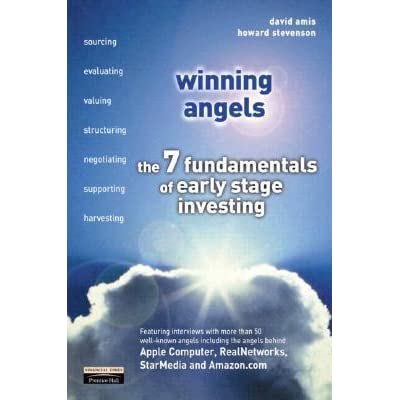
Structure is needed in many aspects of a business. This can include elements such as the team, the planning stage, or the business deal itself. In regard to deal structuring with winning angels, structure is divided into two camps: structure matters, structure does not matter. Previously burned angels will understandably think that structure matters. In order to prevent repeated failure, theses angels want to salvage a deal and protect themselves as much as possible. Contrastingly, first time angels tend to think that structure doesn’t matter. These angels rely on trust with entrepreneurs and try to prevent things from happening that may dampen the business relationship. It is essential to understand the kind of relationship that can occur and the impact of aligning interest. Some relationships created include angel to entrepreneur, angel to angel, and angel to VC.
Winning angels have different strategies when it comes to structuring deal. Controlling angels tend to put their imprint on the price and structure of the deal. Contrastingly, some angels have come to terms with the fact that a deal is bound to be either successful or a failure. These angels are willing to take common stock, preferred stock, convertible notes, or whatever is offered. These investors believe that A-quality entrepreneurs are generally a better guarantee than any paper (Amis & Stevenson, 2001). Although angels use different strategies, there are three common structures in angel investing- common stock, preferred convertible with various terms and convertible note with various terms. As highlighted in the reading, investors consider different perspectives and structure accordingly. Some investor work within the confines of the structure presented and rely on the entrepreneur to get the win. As stated by the investor Lucius Cary, “It should be possible to get the entire agreement on one page” (Amis & Stevenson, 2001). Simplicity is sometimes best when it comes to strategizing as it can maximize the chances of entrepreneurial success.
References:
Amis, D., & Stevenson, H. H. (2001). Winning angels: the seven fundamentals of early-stage investing. London: Financial Times Prentice Hall.
Hi Shayna,
Nice work! I remember reading somewhere in this section that as part of the agreement, investors should ask entrepreneurs for a monthly reporting sheet that will provide further transparency and accountability. I agree with these simplistic measures as I think they unequivocally facilitate each party in helping to make the business a success. Although we are reading about loads of information that can be challenging to comprehend, I am consistently seeing that keeping things simple as well as maintaining honesty and integrity throughout the business relationship are key components to ensuring that the venture is a success! Structuring deals in this way can only be beneficial down the road as the organization scales and more complex issues arise.
LikeLike
Hi Shay,
Nice post and a great summary of the section on “structuring”. I think you make a great point about the importance of aligning interests. Angel investors and entrepreneurs are invariably going to be looking for different things when seeking out the other based on experiences, circumstances, and needs. And there is not a necessarily “right” or “wrong” way of structuring a deal, only what works for the parties attempting to come to an agreement. When there is symmetry in interests, a positive relationship can develop regardless of the terms and options that end up in the final deal.
I also agree completely that “simplicity…can maximize the chances for entrepreneurial success.” If you can’t explain something to somebody else in a page or less, it’s time to re-think just how good of an idea it really is.
Thanks for your post!
LikeLike
You mentioned “getting burned” as a determining factor in how angels structuring proclivities evolve.I thought the authors analysis of early success vs early failure can also play a role in how angels perceive structuring. It seemed as if the authors were stating that novices who win early sometimes don’t fundamentally understand why they achieved positive returns and can risk falling into a pattern of rigidity which leads to a series of inherent failures and a delayed learning curve. On the other hand, novice angels who experienced early failures seem to find sustained success much quicker as they learn to adapt and enhance their acumen as to not completely go broke before they even begin. The takeaway is that failure is the surest way to success.
LikeLike